In the early hours of 12th May 2018, armed police officers entered and shut down Tbilisi’s most famous nightclub, BASSIANI. They claimed to have targeted the club, as well as another venue, Café Gallery, in response to five drug-related deaths that had shaken the city in the preceding weeks. However, BASSIANI had already released a statement on Facebook maintaining they had nothing to do with the supply of the illegal pills involved and discouraging people from buying drugs while this dangerous substance was still unidentified. Thus, many party-goers suspected that the raid had much deeper political significance than the authorities suggested.
Protests were organised in central Tbilisi within hours; the BASSIANI team set up large speakers outside of the old parliament building and around 15,000 people congregated and began to dance. Tbilisi’s main street, Rustavli Avenue, became a large, open-air rave, showing the government that their interference in BASSIANI was unacceptable to the many young Georgians who considered the club an important liberal institution in one of Europe’s most conservative countries. This message was encapsulated in the slogan that soon became the ravers’ mantra: ‘We dance together, we fight together.’
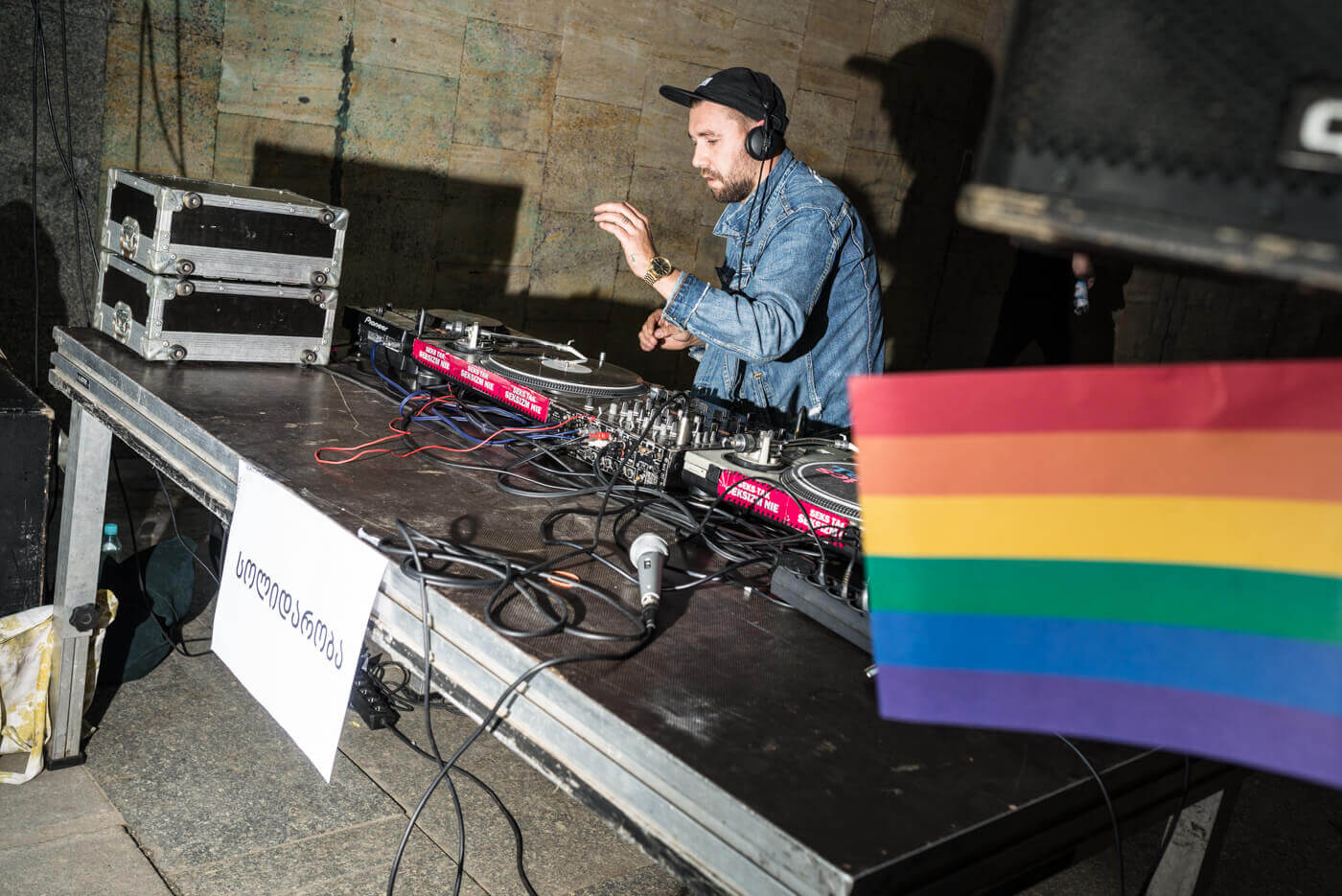
To understand both the raid and the so-called ‘rave revolution’ it inspired, it is important to note BASSIANI’s role in two significant socio-political campaigns. First, the club has been directly involved in the promotion of LGBT rights, a controversial topic in a country where over eighty percent of the population identify as Orthodox Christian and homophobia is rife. Giorgi Kikonishvili, the country’s first out gay activist and founder of Horoom Nights, BASSIANI’s monthly LGBT party, explains that the club’s foundation was crucial in developing an effective gay rights movement in the country. “Of course, there was an LGBT movement and women’s rights activists before BASSIANI,” he told me in the club’s sparsely decorated office, “[but] it was more fragmented. Every one of us was doing our stuff on our own. The club helped us combine all these things and develop into a real movement.”
The creation of Horoom, named after a traditional Georgian folk dance, represented a significant step in a city where homophobic violence had a recent past. On 17th May 2013, the International Day Against Homophobia, Transphobia and Biphobia, a mob of around 20,000 people, partly whipped up by the anti-gay rhetoric of the church, attacked sixty LGBT activists celebrating in central Tbilisi. The police eventually escorted the campaigners to safety but many believed that the authorities deliberately allowed the homophobic crowd to break the protective barricade surrounding the activists. For this reason, Kikonishvili, who was among those attacked, describes the event as “the most shameful day in the history of contemporary Georgia.”
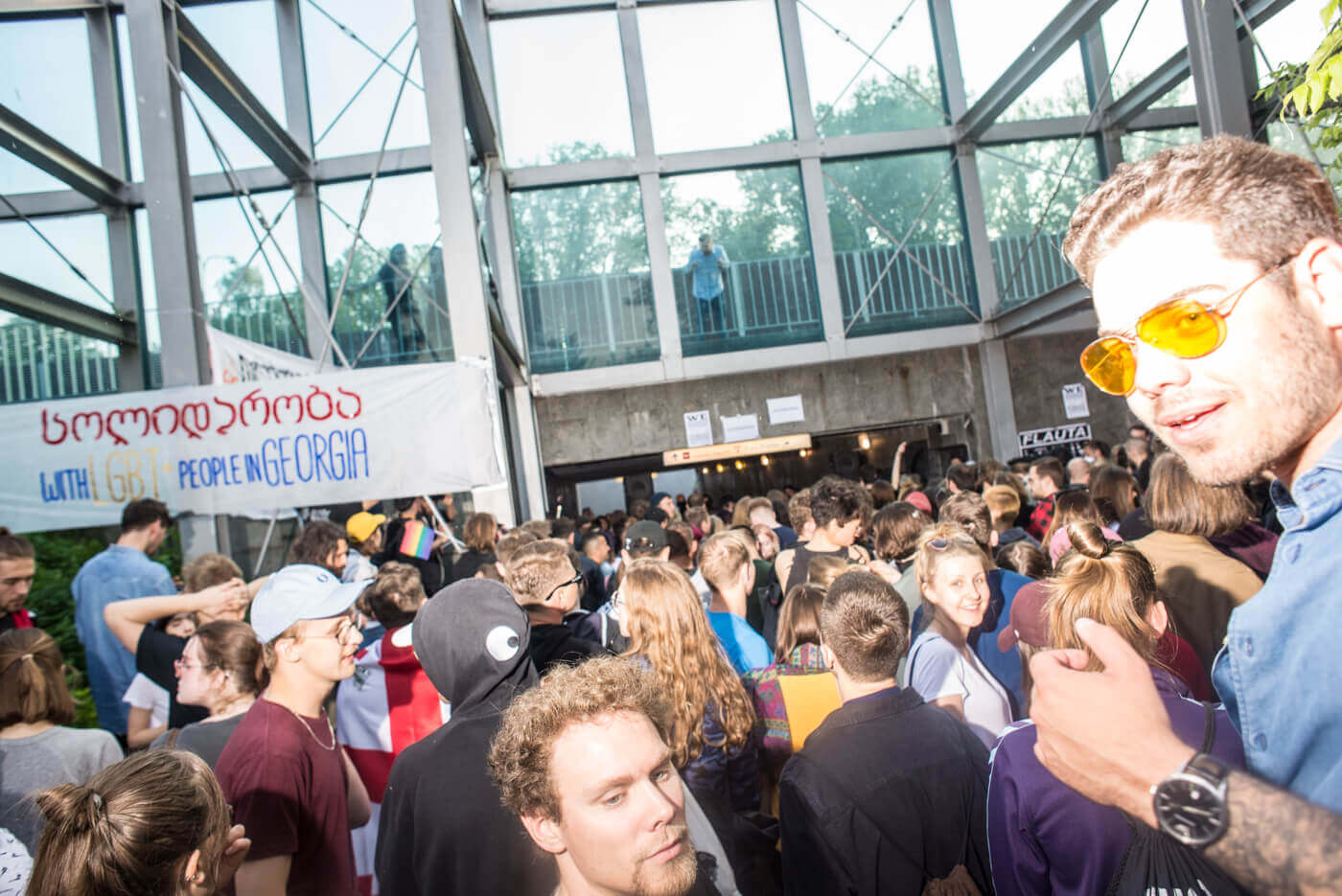
The events of 2013 forced Tbilisi’s LGBT community to realise that a significant change in public opinion was essential to ensure their safety. After mobilising online and in the media, they accepted an offer from BASSIANI, then a new, unknown entity, to create an event specifically designed to promote gay rights through electronic music. It was a risky strategy; a club housed under a football stadium is perhaps not the most obvious gay-friendly space. However, as Kikonishvili notes, it offered “the best way to unite the community, to get these people together and to share ideas together and start this fight on a bigger scale.” To ensure this feeling of inclusivity, the first Horoom event was free and open to all (though with strict security) to enable anyone from the community, whatever their income and background, to attend if they wished.
Horoom became tremendously successful: its first party was full to capacity, and it now boasts a regular community of 5,000 attendees. The events have also largely been scandal-free, with little attention from the far-right groups so aggressive in 2013. It seems, therefore, that the combination of the brand-new, underground venue provided by BASSIANI and a determined network of activists such as Kikonishvili has created Georgia’s first genuinely safe space for gay people, an unthinkable reality just a few years before. Moreover, there is some evidence that societal attitudes towards homosexuality are changing more generally: in 2017 an openly gay person stood in local elections for the first time. This progress is incremental and homophobia remains, but BASSIANI has played a crucial role in challenging the deeply-rooted, cultural norms of Georgian society.
The second campaign associated with BASSIANI, the liberalisation of Georgia’s drug laws, is perhaps even more politicised than the first. The country has some of the most draconian drug legislation in Europe, with up to 11 years imprisonment for possession of small quantities of any illegal drug, 7 to 14 for large amounts and 8 to 20 years, or even life-time imprisonment in particularly severe cases. These measures have led to the disruption of many young lives in the country, not least among Tbilisi’s close-knit creative community: the musician Beka Tsikarishvili was arrested for possession of sixty-nine grams of cannabis in 2014 and threatened with up to fourteen years in prison. Tsikarishvili’s predicament mobilised his friends and supporters to organise protests under the banner ‘Beka is not a criminal!’ calling both for the singer’s sentence to be dropped and for drug reform more generally. Tsikarishvili was eventually given a fine of 2,000 Lari (approx. €650) rather than a prison sentence. However, the protestors used the momentum generated by the campaign to develop a more formal advocacy organisation, setting up the White Noise Movement (WNM) in 2015. Once again, BASSIANI soon became an important vehicle for the activists’ work. Where BASSIANI offered a helpful base and a ready-made network of socially conscious young people, the club itself was keen to ensure that partygoers could enjoy their events without unwanted police interference.
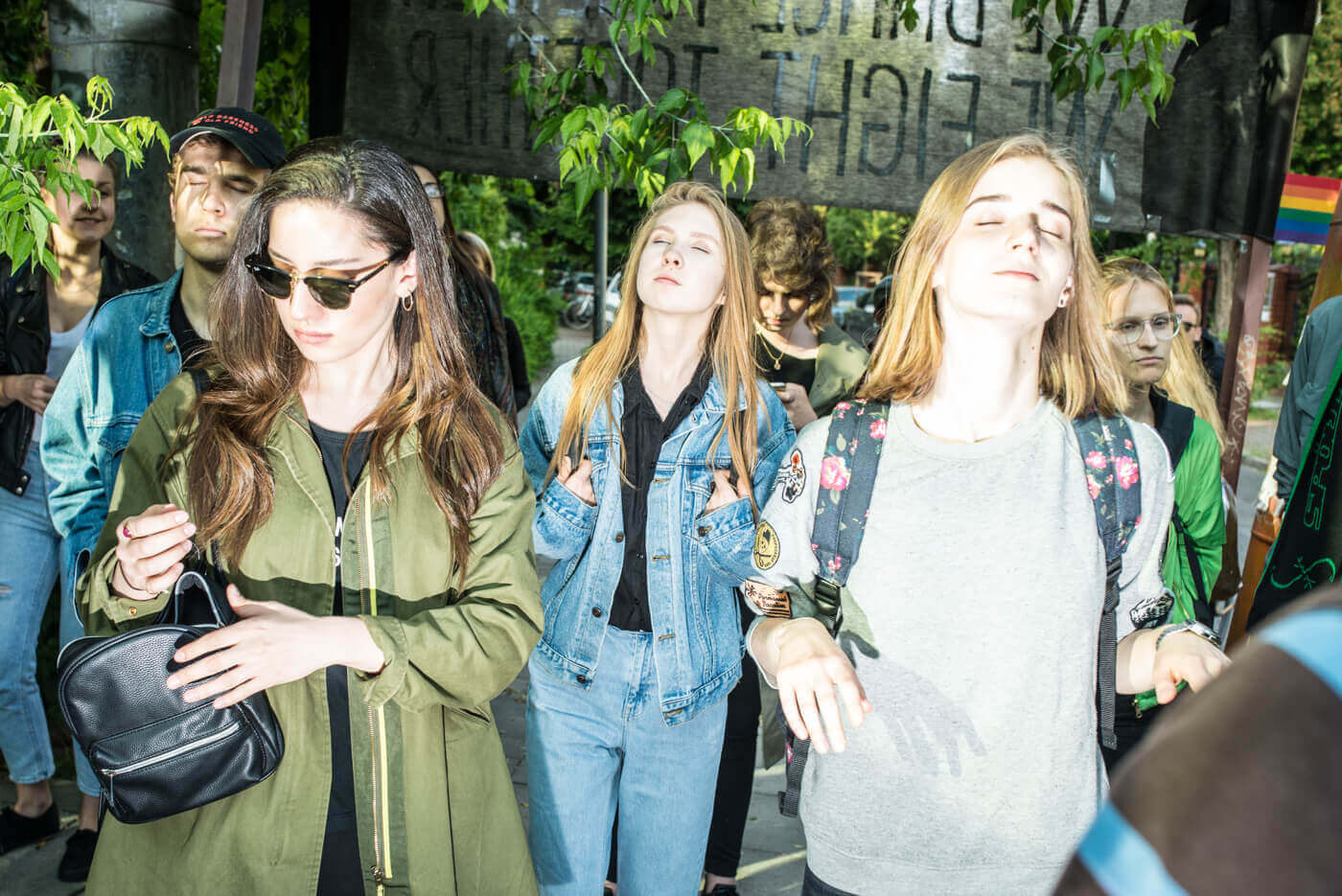
Paata Sabelahsvili, one of the founders of the WNM, told me that the movement’s aim is to shift police from stigmatising drug ‘use’ to tackling ‘abuse.’ “The police have the wrong indicators of success,” he mentioned via Skype from Tallinn, where he now works as an advocacy coordinator for the Eurasian Coalition on Male Health, an NGO promoting HIV/aids prevention across the post-Soviet region, and are too focused on the target-driven practice of “opening and closing investigations” rather than striving towards eradicating over-doses. According to Sabelahsvili, a shift in the latter direction would allow ordinary drug-users to be “diverted away from the criminal justice system,” and enable the authorities to focus on the real dangers of narcotics transportation and dealing by organised criminals. Furthermore, by effectively decriminalising drug-taking, the WNM’s proposals would minimise interactions between the police and the casual user, thus avoiding the instances of brutality associated with enforcing Georgia’s strict drug policy. In 2015, a 56-year old taxi-driver from Kutaisi, Levan Abzianidze, died after being taken to a police station and given diuretic medication to enable him to provide a urine sample for a drugs test. The police deny Abzianidze was forced to take any medication and the case is still ongoing. However, the WNM is adamant that cases like this could be avoided by minimising the pressure on the police to charge drug-users and boast their statistics.
The WNM has successfully introduced measures to avoid such abuses: they have created a network of pro-bono lawyers available 24 hours a day to assist those asked to undergo drug tests. Sabelahsvili suggests that this has reduced the number of urine tests such as the one required of Abzianidze from around 60,000 incidences a year to 20,000. Furthermore, being associated with a famous venue such as BASSIANI has allowed the movement to bring the issue of drug liberalisation directly into public consciousness, especially among the younger people most likely to experiment with such substances. The movement now boasts around 50,000 subscribers across its social media platforms, many more than any other social campaign in the country.
The authorities probably decided to raid BASSIANI as a demonstration of power in the face of the movement’s increasing popularity. However, this decision was a dramatic miscalculation and has not prohibited the WNM’s momentum. Its proposed changes are beginning to be enacted into law: in July 2018, just two months after the government’s raid, Georgia’s Constitutional Court decreed that marijuana should be de-criminalised, transforming over night the country’s policy on the drug from being one of the strictest in Europe to one of the most liberal. Clearly, this is a long way from the programme of total drug decriminalisation advocated by the WNM. Nonetheless, it suggests that political and social attitudes towards drugs in Georgia are gradually turning towards the position promoted by BASSIANI and the WNM, a remarkable achievement for a small group of activists and partygoers based in a disused swimming pool.
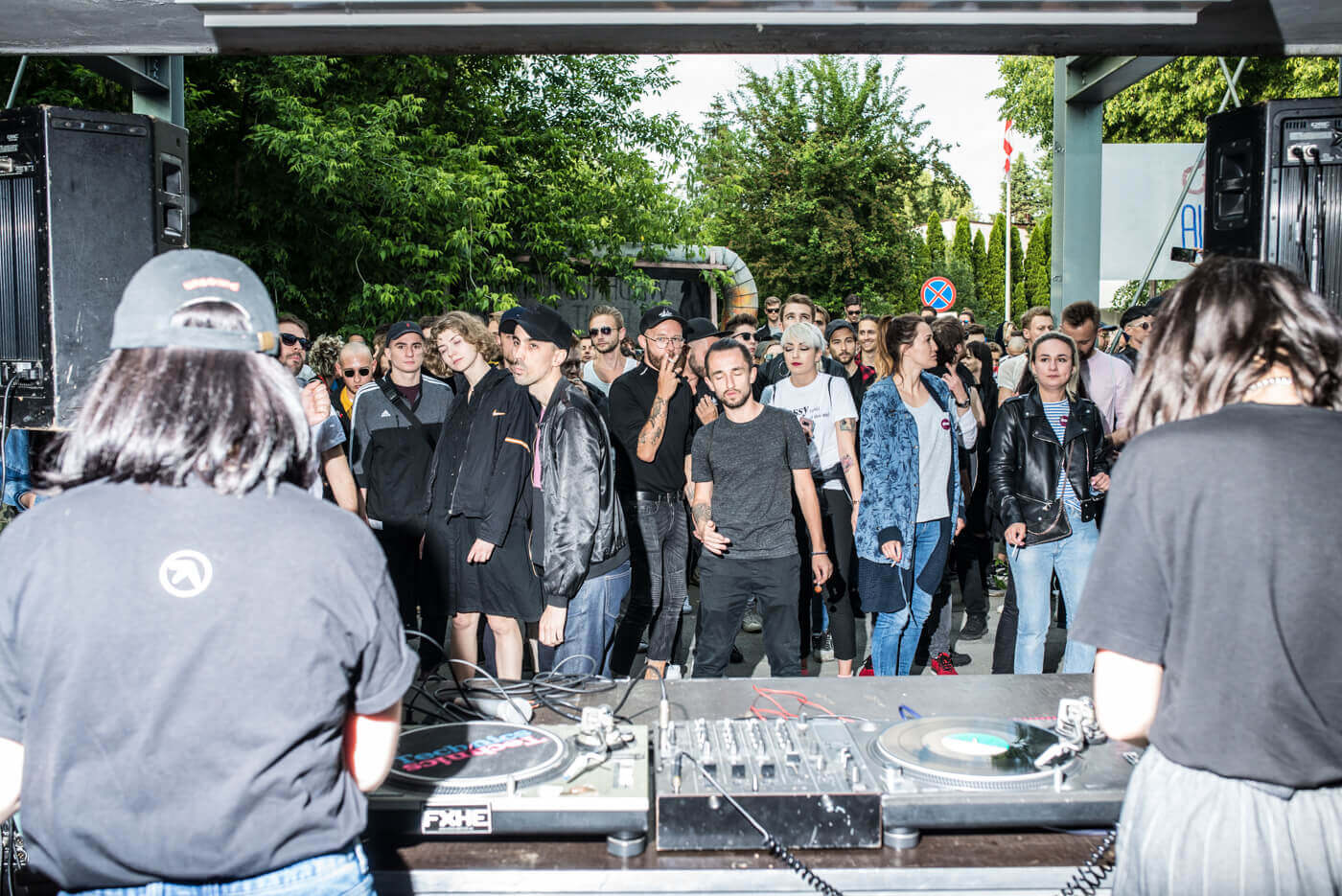
Why, then, has so much successful activism flourished out of Tbilisi’s electronic music scene? Natia Sartiana-Kituashvili, founder and director of the Creative Education Studio (CES), a music and production school based in the city, suggests that the answer may lie in music’s importance for Georgian culture more generally. “Georgians are very musical people and it means a lot to us,” she tells me in the CES office, “it comes naturally to us.” With over four hundred DJs, producers and musicians graduating from school just seven years after its foundation, it certainly seems that the music industry is booming in the city, allowing institutions such as BASSIANI to attract genuine local talent keen to enact change in Georgian society more generally.
Perhaps more significant, though, is the atmosphere and structure of BASSIANI itself. From its inception, the club was designed to be a political, as well as cultural, space with three main principles at its core: ‘Equality, Solidarity and Liberty.’ Rather than presuming that social initiatives may develop organically through its regular audience, its founders made an effort to reach out to activists to encourage them to use their venue as a base. In turn, those who had previously employed more traditional NGO-based methods for their campaigns realised that BASSIANI could provide a valuable platform to encourage for social engagement among younger people. As Paata Sabelashvili suggested to me, BASSIANI “made activism sexy Georgia,” shifting the focus away from sterile political or academic discussion and creating a genuine civil movement for young people to engage with on their own terms.
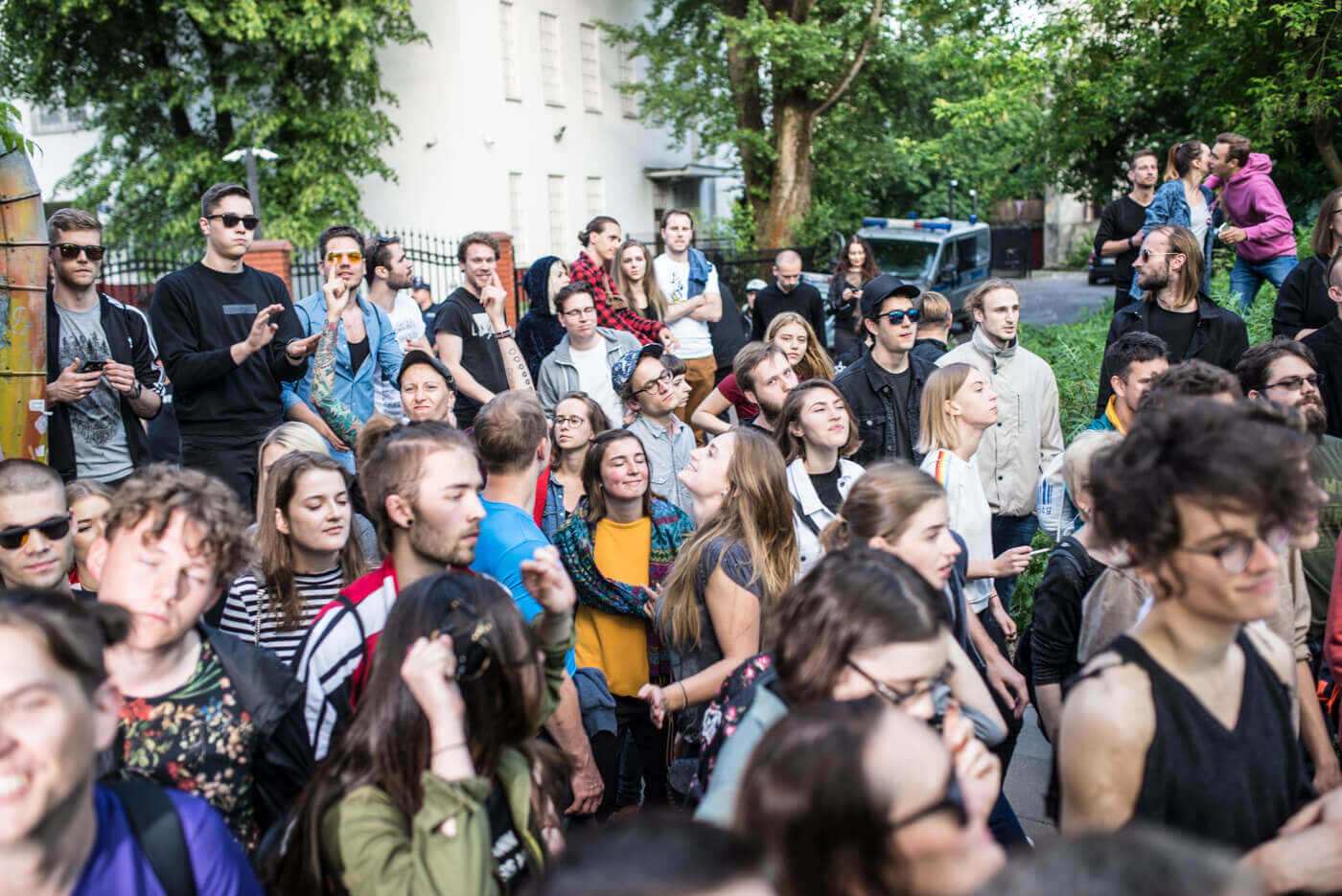
The progress made by the ravers of BASSIANI is limited and fragile. Georgia is home to a number of conservative and far-right groups that aggressively oppose the social action encouraged by the club. Furthermore, though efforts have been made to stimulate similar projects in cities such as Kutaisi, the connection between the music scene and social activism is certainly strongest in Tbilisi with relatively little traction outside of the capital. Nonetheless, the symbiotic relationship between the creative industries and social activism in Tbilisi shows that a small community of determined individuals can achieve a great deal when given an appropriate and genuinely engaging platform with which to work. The movement may well face continued opposition and hurdles. However, BASSIANI, and the values it represents, will be hard to stop.
![Political Critique [DISCONTINUED]](http://politicalcritique.org/wp-content/uploads/2015/09/Political-Critique-LOGO.png)
![Political Critique [DISCONTINUED]](http://politicalcritique.org/wp-content/uploads/2015/09/Political-Critique-LOGO-2.png)